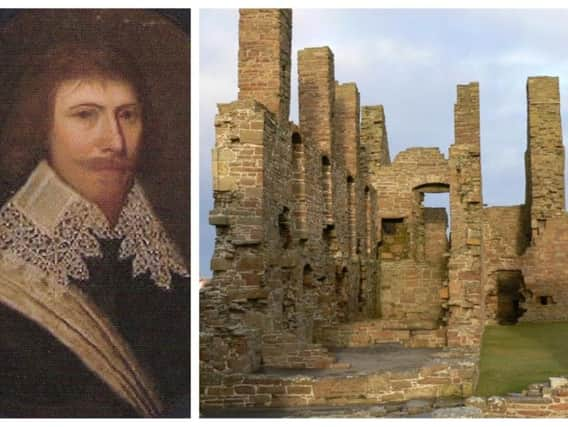On this day 1593: Death of island 'despot' Robert Stewart, 1st Earl of Orkney


Robert Stewart, 1st Earl of Orkney and Lord of Zetland (Shetland) died on February 4 1593. He left behind a rather dark reputation which was later inherited by his son, Patrick.
Robert was the illegitimate son of James V of Scotland and his mistress Euphemia Elphinstone. He grew up with the great privileges and power carved up by the Stewart royals and was an enthusiastic supporter of his half-sister, Mary Queen of Scots, who granted him the Royal lands of Orkney and Shetland in 1564.
Advertisement
Hide AdAdvertisement
Hide AdIt has been claimed that Robert pressured the Bishop, who conducted the marriage of Mary Queen of Scotland to the Earl of Bothwell in 1567, into the land swap and then forced local people into building the Earl's Palace at Birsay on his behalf.
But still, Robert Stewart was not an Earl.
According to accounts, in 1570 Bishop Bothwell and others from Orkney claimed that his tactics were akin to tyranny.
In Shetland, Robert appointed his half brother Laurence Bruce - whose mother was also Euphemia Elphinstone - as Sheriff to run his regime as Sheriff.
Based on Unst, it is said he led a campaign of piracy on passing ships and doctored the system of weights and measures to boost income for the Earldom.
Complaints about Bruce led to his removal from post by a Royal Commission in 1577 although he was back the next year after being appointed by Robert as "Sheriff-Depute".
Robert was imprisoned in Edinburgh in 1575 on grounds of treason by the Regent for James VI after it emerged he offered Orkney to the King of Denmark. He was then indicted in Edinburgh the following year for misuse of power in Orkney and Shetland, but the trial never happened.
According to the Stewart Society, Mary wrote her will at Sheffield in 1577 declaring his title to Orkney null and void.
Following her death in 1587, Robert started to woo her successor and his nephew, James VI, with the King finally making him Earl of Orkney, Lord of Shetland and Knight of Birsay, in 1581.
Advertisement
Hide AdAdvertisement
Hide AdIslanders were horrified and Robert's new titles were quickly troubled when the King launched investigations into a number of land grabs across Scotland, not least in the islands in the north.
Land was seized and returned to its original owners with attempt to remove Robert from Orkney. However - with the support of a force of men - he resisted and remained on the islands, where he died on February 4, 1593.
His son, Patrick, took control of the Earldom but was later imprisoned for financial irregularities and allegations over his treatment of islanders. His illegitimate son was sent to raise a rebellion in Orkney o his behalf and was later hanged, along with 16 others who took part in the rising ordered by his father.
Earl Patrick was also sentenced to death following a trial. According to accounts, his execution was postponed after chaplains pleaded to educate him and give him Communion before death, such was his ignorance.
He was beheaded at the Mercat Cross in Edinburgh on February 6, 1615.